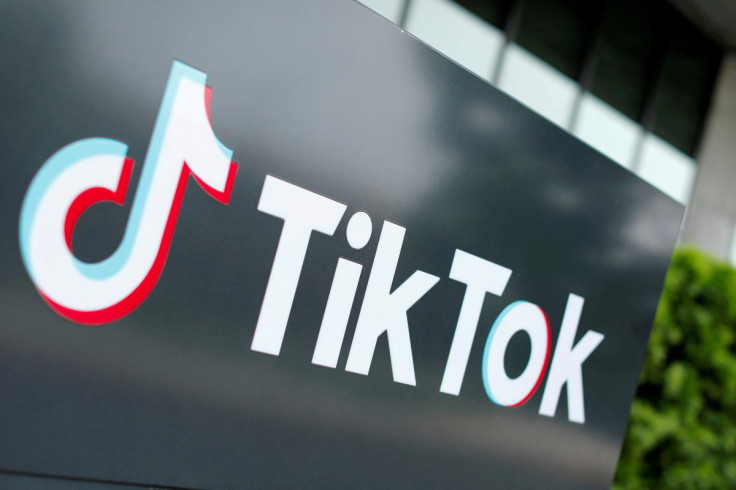
On Saturday, Congress advanced efforts to ban the widely-used video-sharing platform TikTok. The House made a second attempt to pass legislation aimed at tackling what lawmakers argue poses a national security risk.
In a decisive 360-58 vote, the House of Representatives approved a bill containing a provision that would compel ByteDance, the owner of TikTok, to sell the company within a year. If the Chinese tech firm fails to follow the order, it will be removed from app stores in the US.
Unfortunately, the TikTok Ban has passed the House. Despite this, I am staying positive and determined. The next step is for President Joe Biden to sign the bill. This will lead to TikTok being removed from the US once it takes effect.
— FaeChautto (@FaeChautto) April 20, 2024
I will now concentrate on redirecting… pic.twitter.com/0jUb8a94qZ
However, users can still access the app through alternative channels. It's widely anticipated that Chinese officials will obstruct any efforts made by ByteDance to sell the app.
In a rare Saturday session, the House aimed to expedite a supplemental foreign aid package for Ukraine, Israel, and Taiwan by bundling it with five other pieces of legislation, including a widely supported bipartisan bill addressing concerns about TikTok and imposing sanctions on Russia and Iran.
One additional topic addressed on Saturday was an immigration bill echoing conservative priorities outlined in HR 2, a bill passed by the Republican House last year. With this immigration bill, conservatives hoped to pressure Democrats into accepting a set of conservative immigration provisions in exchange for approving aid to Ukraine.
However, Speaker Mike Johnson declared that his session needed to have the necessary votes to make such a demand. This immigration bill was the only piece of legislation to fail on Saturday. Placed under suspension of House rules, it couldn't gain the necessary two-thirds vote threshold for passage.
ByteDance vs. TikTok Ban: The Battle Begins
The TikTok bill attempts to address national security concerns surrounding the Chinese-owned app. Lawmakers believe China's national security legislation gives the Communist Party (CCP) the power to access sensitive user data on Americans.
Despite TikTok executives being convinced that the US had abandoned its plan to ban the app after Joe Biden joined the short-form video-sharing app, the President has signalled that he would sign a TikTok ban into law if it were to reach his desk.
It seems that President Joe Biden is taking a firm stance on TikTok's ties with China, as he supports legislation that could lead to TikTok being banned in the United States unless its parent company, ByteDance, divests from the app. This move comes amidst growing concerns in… pic.twitter.com/zX72C1PCmb
— Breaking Points Clips (@BreakingPointsN) April 22, 2024
"If they pass it, I'll sign it," he told reporters in March. The bill is expected to pass the Senate in some form, given the vocal support from the leadership of both parties. If Biden signs the legislation into law, ByteDance will have 12 months to locate a buyer or pursue a court challenge.
An offer for TikTok from our CEO @chrispavlovski pic.twitter.com/lIeZ6IXANU
— Rumble 🏴☠️ (@rumblevideo) March 12, 2024
Although the company is expected to file a lawsuit to oppose the legislation if it passes, Rumble CEO Chris Pavlovski has extended an offer to ByteDance's CEO Shou Zi Chew, expressing readiness to "acquire and operate TikTok in the US.
Here is a video from Shou the CEO of #tiktok talking about the results of the ban for @tiktok_us pic.twitter.com/aCkxi5CqH4
— +thyrevolution.eth 🌱 (@thyrevolution) March 14, 2024
An earlier attempt to ban the app during the Trump administration was unsuccessful in court. In a video posted on TikTok last month, Chew vowed to challenge the legislation, as reported by Independent.
Moreover, the company engaged in a bold congressional blitz campaign, allowing TikTok users to effortlessly contact their local representative's office to voice their opposition to the legislation. This tactic led to the highest volume of calls to many offices in recent memory.
Some lawmakers disagreed with the campaign, leading to further polarisation against the company. "We will not stop fighting and advocating for you," Mr. Chew told his company's users in March.
"We will continue to do all we can, including exercising our legal rights, to protect this amazing platform that we have built with you."







